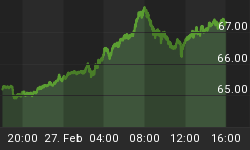Below is an excerpt from Part 1 of our 2012 Yearly Forecast. It was originally posted at www.speculative-investor.com on 15th January 2012.
Random Thoughts
*There are similarities between the current situation in the US, the US of the 1930s and post-bubble Japan, but the monetary backdrop is very different in the US today than it was in the earlier post-bubble periods. The most obvious effect of the monetary difference is that the prices of most goods and services have continued to rise in the US since the bursting of the private-sector credit bubble in 2007.
*The less obvious effects of the current period's much higher rate of monetary inflation include the slowing of the corrective process and the introduction of additional price distortions and inefficiencies.
*The US eventually recovered from the bursting of the 1920s bubble despite the many idiotic policies implemented by the Hoover and Roosevelt administrations, but the US will not be able to recover from the bursting of the more recent credit bubble if the Fed continues to engineer a high rate of monetary inflation. If current Fed policies continue for at least a few more years, the US economy will end up in a far worse state than it has ever been before.
*Our view continues to be that a global economic depression of the inflationary kind began in 2007.
*At the beginning of last year we thought that the potential for China's real estate bubble to burst was the biggest risk facing the stock and commodity markets, and that tighter Chinese monetary policy prompted by rising food prices was the most likely catalyst for the bursting of the bubble. As we write today, it looks like China's real estate bubble has burst and that Chinese officialdom has begun to ease monetary conditions despite the country's inflation problem. Also, there is a lot less optimism about China's prospects now than there was at this time last year. The upshot is that there is nowhere near as much scope for a negative surprise out of China in 2012 as there was in 2011, which means that China-related risk has fallen.
*At the beginning of last year we thought that the euro-zone government debt problem was the second biggest risk facing the stock and commodity markets. This is still a sizeable risk, but its potential to wreak havoc has been substantially reduced by virtue of the fact that it has been a "Page 1" story for the past several months.
*We perceive this year's biggest risk to be 'unexpected' weakness in the US economy. Reliable leading indicators tell us that the US economy will probably get a lot weaker over the coming few quarters, but most people are still expecting the economy to "muddle through" and most equity analysts are still anticipating good earnings growth in 2012. The risk relates to a mismatch between expectations and reality.
*This year's second biggest risk is that there will be much greater instability in the Middle East. We doubt that there will be open military conflict between Iran and the US or between Iran and Israel, but fear of such conflict could have a big effect on the markets. Also, the political situations in Egypt and Syria are likely to become more turbulent, and there is an outside -- but not insignificant -- chance that Saudi Arabia will get caught up in the 'revolutionary wave'.
The potential financial consequences of this risk could be mitigated via the purchase of long-dated oil call options. Ideally, the options would be accumulated during periods of weakness in the oil market.
*Going into 2011 we thought that money-making would be far more difficult over the year ahead than it had been over the preceding two years, and that our primary focus should therefore be on 'playing defense'. As 2012 gets underway we think it is still appropriate to maintain a defensive posture, meaning that we continue to advocate an above-average cash position.
We aren't offering a free trial subscription at this time, but free samples of our work (excerpts from our regular commentaries) can be viewed at: http://www.speculative-investor.com/new/freesamples.html















